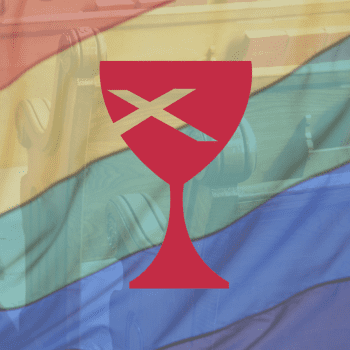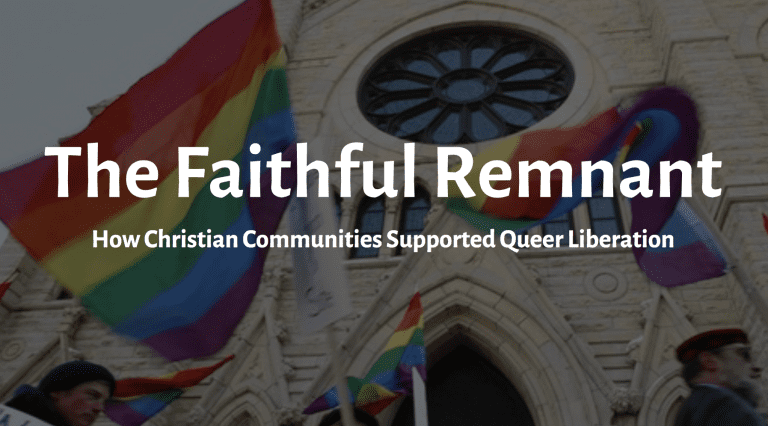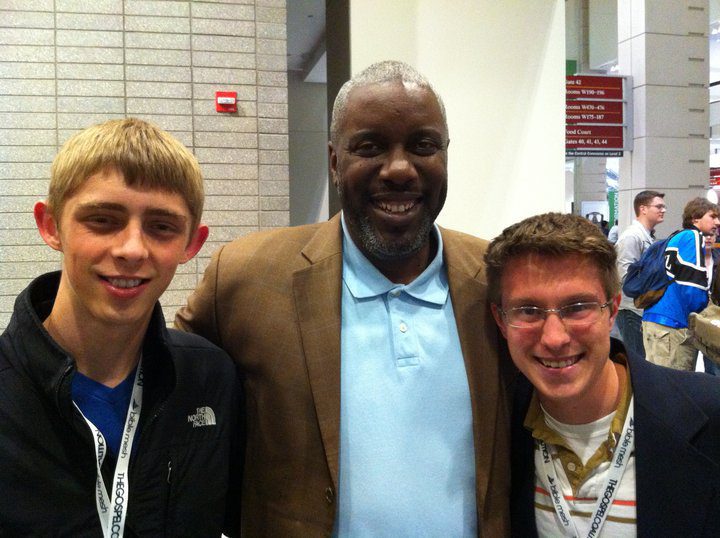“OMG You’re f***ing disgusting! You’re a PASTOR.”
This is a message I received when I opened up Grindr, a gay app, on my phone recently. It’s not the first time as a single, millennial, gay pastor that I have received this response from someone seeing me on one of the various apps.
Early on in my ministry, an individual from my congregation asked me to coffee. When we sat down to talk, he said, “I really need to have a conversation with you. I saw you on a few gay dating apps and I think it’s a real problem.” When I asked why he thought it was a problem, considering that this individual himself was on the apps, he said, “I just think my Pastor should be further along than me with these things.”
I would be lying if I said I wasn’t internally conflicted about how to be both a single, gay man and how to be a Christian pastor. My mind is filled with all the stereotypical notions of what a pastors life should look like, shaped by my conservative Christian upbringing. Pastors should seek to be morally superior to the congregations they shepherd. They should avoid making their private life public. And they certainly shouldn’t be seen dating- in fact, in order to be Pastor, you should already be married.
Yet as my own theology has evolved over the years and as I have done my own inner work, I have gradually become more comfortable with the expression of my sexuality, both publicly and privately, and made a decision early on in my pastoral ministry that I would never hide or be ashamed of who I was in front of my congregation. Radical authenticity has been my number one commitment, even if it makes people uncomfortable.
The sexual ethics I teach my congregation are the ethics I live by: That our sexuality is a gift from God that is meant to be enjoyed for pleasure, procreation, and relational intimacy. The Christian way to engage sexually is with restraint, consent, respect, and joy. We should always ask ourselves if our behavior is being motivated from a healthy, whole place, or in an attempt to fill some inner longing that perhaps only God can truly satisfy. But ultimately, we shouldn’t be afraid to explore, experiment, and express our sexuality, centered on our core Christian values, and keep and awareness of what the Spirit might be speaking to us as we do.
This message is radically different from much of what Christians have been taught about sex. I don’t believe that sex is reserved only for marriage, I don’t believe you’re impure you have sex outside of covenant relationship, and I don’t believe sex should be something we shy away from talking about in the church and in our personal lives. I believe if the church made more room for honest conversation around sexual expression then perhaps the Roman Catholic and Evangelical movements wouldn’t be crumbling under one sexual scandal after another.
It’s the repression and the suppression of our sexuality that causes all of us to act in unhealthy ways. Addiction to pornography, affairs, unsafe sexual behaviors all are likely results of preaching a message of shame and strict boundaries about sexuality. When we take one of the most complex and unique parts of a person and try to universalize rules for it’s expression, that system is bound to fall apart. You can’t fit a square into a circle, as the adage says. Each persons sexuality is as unique as their personality and their DNA.
I really believe all of this- I believe it based on my own extensive study of Christian teaching on sexuality and based on my own experience. A grace-oriented, values-centered sexual ethic seems to me to be the healthiest form of sexual expression that I could encourage anyone to follow. Yet, even though I take this stand very publicly and very boldly, people still seem to have a hard time believing that a Pastor could apply this same ethic to his life. For some reason, we’re supposed to be called to a “higher standard”- which I think actually means a repressed or hidden way of living.
Because here’s the truth: Your single pastors are dating and having sex. Your married pastors are having sex and exploring sexually. And if that makes you uncomfortable, its probably symptomatic of some deep damage done by the false-teaching of “sexual purity” promoted by your conservative Christian worldview. I want to suggest that congregation members should be relieved to find out that their pastors are normal human beings with normal desires for sexual and relational intimacy. If you don’t see that from your pastor, that’s when you should be concerned- repression and hiding never yields a healthy lifestyle.
As a Pastor, I feel called to live my life authentically and publicly, so that my congregation and community can see me just as I am and judge whether I am truly practicing what I preach. This is one of the hardest aspects of this calling, but it’s also one of the most rewarding aspects as well. So when I am at the bar with friends, I am not afraid to be seen by someone from my church. When I am on a dating app, I do so without a hint of fear or shame, because I believe I am expressing myself in a way that aligns with my values. And when I do make a mistake, I hope that the culture of grace that I am creating for everyone in our church will be extended to me.
Because we’re all just doing the best we can. We’re all just broken people seeking to follow Jesus.
It’s my hope that my life lived in authenticity challenges my community to rethink their own ethics and beliefs. If you’re uncomfortable seeing a Pastor on an app, the question you should ask is “Why?” What shame-infused belief do you hold that makes you feel shameful for dating or having sex? If you’re uncomfortable hearing your pastor speak about their own romantic relationships, ask yourself “Why?” What ideology have you bought into that makes you think that your own sexuality is broken or disgusting?
And we as pastors must commit to be authentic and open to critique or questions- for these present us some of the greatest opportunities to teach not just with our words, but with our lives, what a Jesus-oriented life can look like beyond all of the false-teachings of legalistic Christianity. It’s not easy to be so vulnerable, but I believe its one of the most powerful parts of our calling. It helps us confront our own shame, our own false-beliefs, and challenges us to be careful with our words– if we can’t practice what we preach, then perhaps we shouldn’t be preaching it.
At the end of the day, the Gospel should compel all of us to live with authenticity and transparency, seeking to align every aspect of our lives with the way of Jesus. As Paul writes in Romans 14, what seems to be sinful for you may not be sinful for another, so suspend judgement of everyone. Our unique call is to listen to what the Spirit is speaking to our own lives and seek to be faithful to that, understanding that what we are called to may be different than what another is called to. That’s the beauty of God’s expansive creativity.












